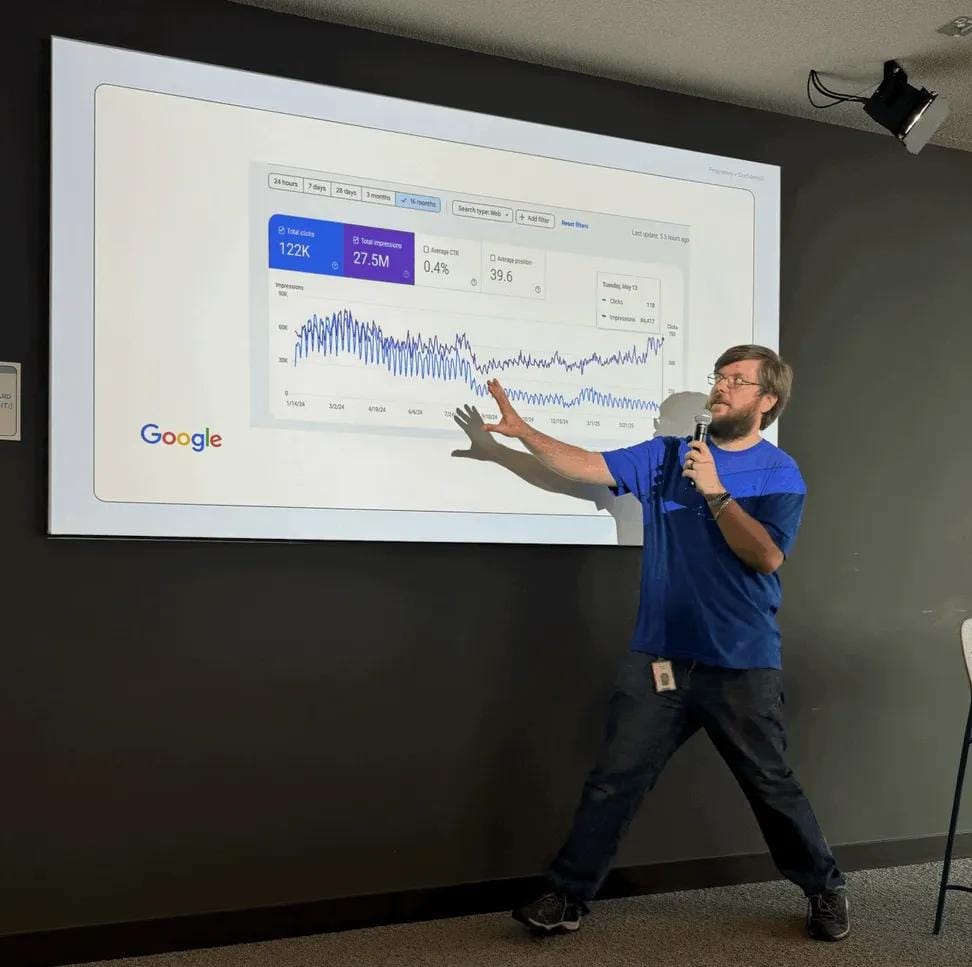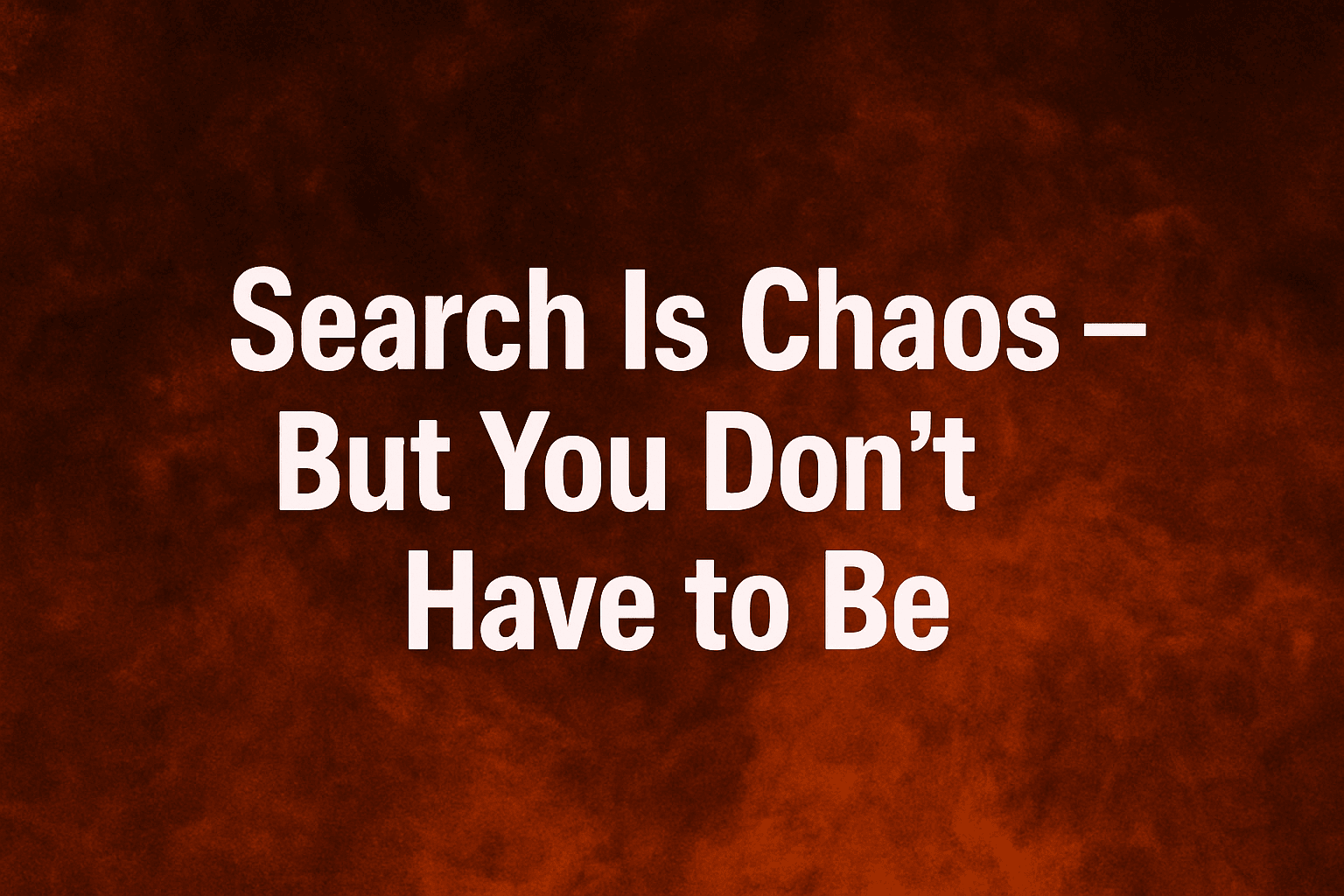SEO in the Age of AI: Why you're not losing your job anytime soon

Will SEO become (is becoming) obsolete? There's some anticipation in the SEO industry about how SEO will look like with many search engines now adding "answer bots" similar to chatGPT.
TL;DR: Jump to the Conclusion
The best way to predict the future is to look at the data we have and related historical events, so here's everything we know for sure about AI and SEO (plus my thoughts):
Insights from SEMRush Zero Clicks study
- People are not spending a great deal of time analyzing the results, but are making quick decisions to get to what they want (graph below shows number of seconds the user takes to make a decision about their next step after the first search). This shows that, generally speaking, users are looking for quick answers, they're not spending a lot of time on the first page of SERPs analyzing results. ChatGPT definitely will feed into users' need to get to the answer they want faster.

- ~25% of users do no click on any results. This number is not only because of featured snippets, but includes users that moved to image search for example after the first initial search. I find this very puzzling, because that means that the number of people not clicking on results because of featured snippets is even less! Does this mean, that even with the introduction of answer bots into SERPs, the number of users that will not click on any result is not as big as we are anticipating?

- Almost 30% of people are either refining or extending their searches in some way. Google search is very smart and very easy to use, yet 30% of the time users need to refine or do more follow up searches. With the introduction of Answer Bots that provide answers directly to their questions (less need to research), will people generally search less? So not only there maybe less clicks, but also less searches.
- "People want more immediate and digestible information. Users are not inherently looking to avoid a click, but they are instead looking to acquire information quicker. Two features of Search today facilitate that: Direct Answers and an optimized, semi-infinite scroll experience on mobile." This is a very interesting note in the study. So the question is, to what extent will Answer bots will be able to give the users the information they need?
General Insights from the SEO industry
- More search engines are coming into picture and are introducing answer bots as part of their features. Google issued code red over chatGPT so something is definitely coming soon to Google search.
- If you try searching for a conversion/money query on You.com, it will return a single result as below. I do not think this is very attractive for users looking to buy something. People like to feel they have options and see different alternatives before making a purchase. That's one of the strong reasons people shop online in the first place.
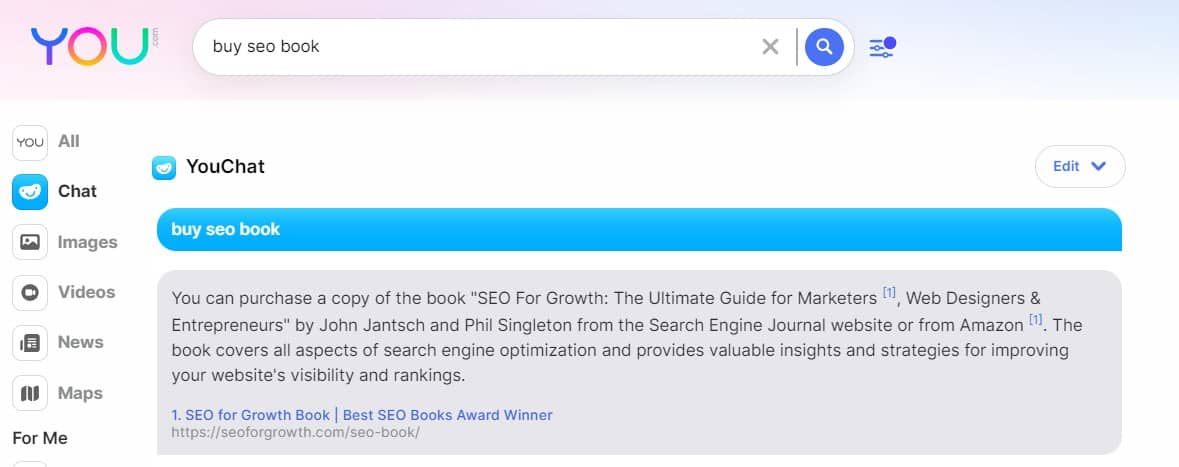
- AI content writing tools have been available for a while now, and while they have been adopted by many business, they have not been able yet to completely replace human content writers. In fact, some content writers an SEOs use them to speed up and improve their work by making sure you have all the right keywords/entities, preparing comprehensive outlines and content brief, etc...
- Google is facing plenty of competition. Not necessarily a strong one so far as other search engines exited for long and Google still dominated. The introduction of Answer bots to search engines will definitely attract some users, but you'd be surprised to know that with the exception to China, many people around the world have not tried or had any interest in the technology so far. This of course may change if a tech giant like Google adopts it.
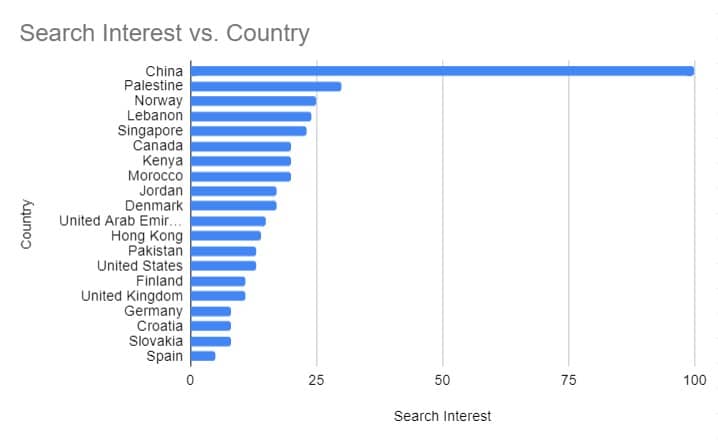
Insights from AI industry
- The main concerns with AI are: mass unemployment, dulling of our minds because we don’t have to think for ourselves anymore, and enslavement or total annihilation of the human race (Yudkowsky, 2008, HIIG Berlin).
- AI is not new, it has been used for a while now. Google already uses AI in some of its products like Google lens and Gmail “Smart Reply" feature. Siri is also a good example.

- There are 3 types/species of AI. The one that is currently around is Artificial Narrow Intelligence. From its name, you can see that this type of AI has limited capabilities. Any ANI system focuses on 1 or 2 functional areas. It is not self aware or portray any self consciousness. ANI appears to be making decisions, but its the math and statistics that are running in the background. So the current version/level of AI does not match human capabilities yet.
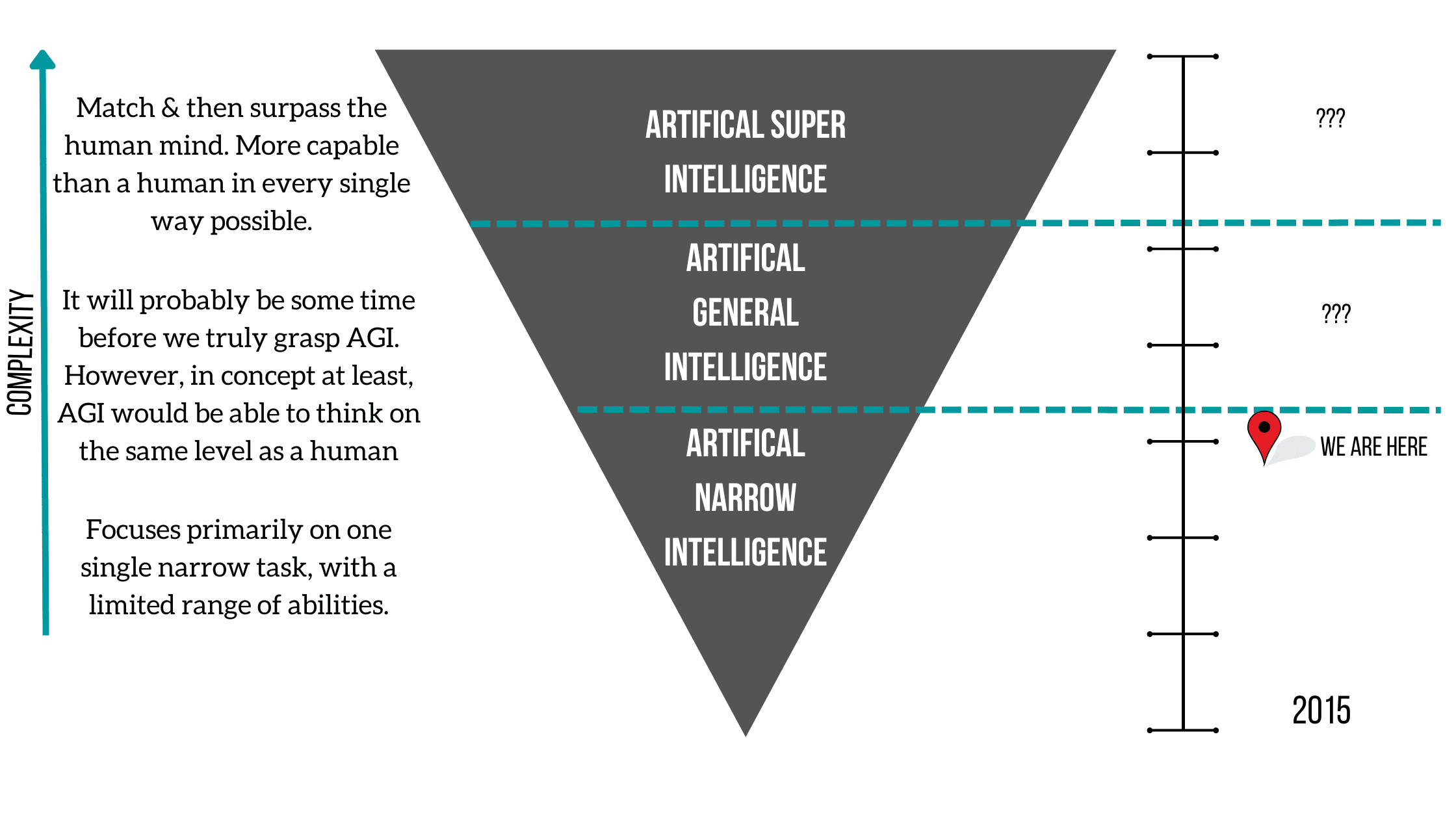
So given all of the above, what should we expect with many search engines attempting to integrate answer bots as part of their search experience? Here are my predictions based on all the insights above (and hey, I may be wrong!).
Conclusion: How AI will impact the SEO industry?
- The real impact of answer bots, will start to be visible once Bing or Google incorporates it in search, since all current search engines that have the feature do not have a huge user base at the moment.
- If Google incorporates Answer bots in SERPs, we're likely to see a drop in clicks and search volumes for informational queries. This will hit top of funnel keywords like "what is X".
- From the SEMrush study, less than 25% leave Google with no clicks to a website. We can expect that number to increase if an AI feature is added to SERPs. It will not kill SEO though.
- I cannot imagine Google adding an AI feature to its SERPs without that impacting the core algorithm of how results are ranked. Google algorithm is impacted with seasonality and the fluctuation of demand, and since there'll be a decrease in search volume, I assume we'll be fluctuations in SERPs, but also maybe changes in Google algorithm to adopt to new user behavior. That is, if Google embeds the AI feature directly in SERPs and not include it as an additional feature like image search, news, videos, etc...
- If Google ads an AI feature as an additional feature, the impact maybe less.

- Both Google and Answer bots, still need SEOs to optimize websites, make them accessible, structure content, add schema and more... so SEO will still be needed.
- There are search queries that AI will not be able to answer. People looking to read other people's reviews, success stories, etc.. for example will probably click on the usual search results.
- AI will also not be able to provide the best answer to bottom of funnel keywords most of the times.
- While no one can tell what will happen for sure, I don't think SEOs will lose their jobs but will need to upgrade their content strategies to adopt to the new changes in SERPs and user behavior.
- Businesses that rely heavily on ad impressions to monetize will be probably be hit hard.
The SEO Riddler Newsletter
Join the newsletter to receive the latest updates in your inbox.


